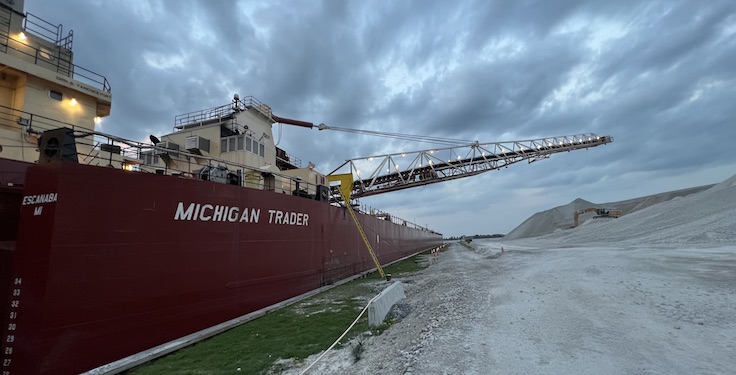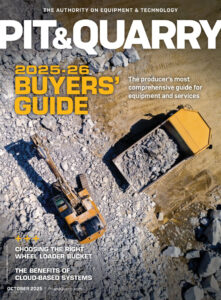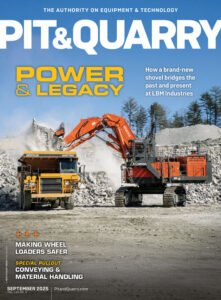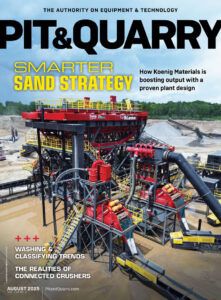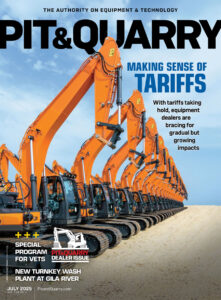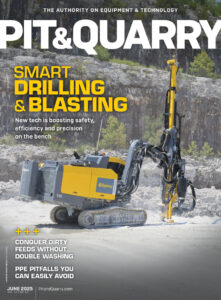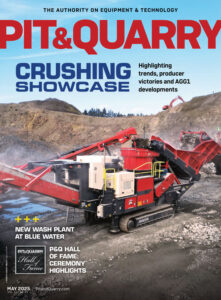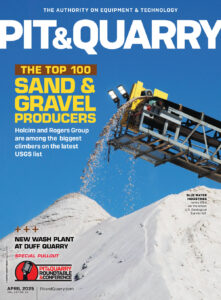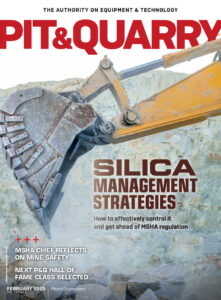

A lot of training and informal instruction regularly takes place to ensure miners are fully aware of their miners’ rights under the Federal Mine Safety & Health Act.
Mine operators and managers have rights too, and it is essential they know what they are before the Mine Safety & Health Administration (MSHA) arrives.
Generally, MSHA inspectors and investigators will not instruct mine companies or managers on their rights. You must get that information elsewhere, and it’s usually company counsel or consultants who provide that insight.
Here is a summary of what companies and their managers will want to know.
What to know
First, managers and supervisors who work at mines are miners. They have the same miners’ rights that hourly miners have. This includes the right to make an anonymous hazard complaint to MSHA, the right to provide information confidentially to an MSHA inspector, and the right to not be retaliated against for any protected safety activity.
Managers and supervisors are also agents of the mine operator. An agent is defined in the Mine Act as any person who operates part or all of a mine or who supervises miners.
An agent’s actions can be imputed to the employer, meaning if an agent acts negligently or with intentional reckless disregard for safety, it is as if the company did that. MSHA may issue an unwarrantable failure citation with heightened negligence findings and penalties against the company where an agent was responsible in some negative way for the existence of a violation.
MSHA can also prosecute agents as individuals. This is usually associated with an unwarrantable failure citation where MSHA believes the agent knew or should have known there was a hazard and did not do the right thing to protect themselves or other miners.
In these circumstances, MSHA will propose a civil penalty that the agent is to pay to the government. In extreme situations, an agent may be criminally prosecuted.
Because of this potential risk of legal action against them in their role as an agent, a supervisor or manager will want to be particularly aware of their rights in dealing with MSHA. Whenever an inspector requests an interview or even asks what may seem like a simple question, an agent, just like any miner, has a right to decline to answer. Even if agents agree to answer a question, they can always decide after hearing it that they do not want to answer. Speaking with MSHA is purely voluntary.
If agents are willing to speak with MSHA, they also have the right to have anyone they want with them during the questioning. This can include the agent’s manager, the agent’s lawyer or a company lawyer. It could be a co-worker or anyone else the agent chooses.
If MSHA asks the agent to sign a statement, the agent has the right to decline to do that. If the inspector asks the agent to listen to the inspector read back notes of an interview and acknowledge that they are accurate, the agent can also say that he or she will not agree to do that. The agent can also decline to consent to be recorded by MSHA while responding to any questions.
This is not meant to suggest that an agent should always refuse MSHA’s requests. Sometimes – and maybe even oftentimes – it is in the agent’s and the company’s best interest to cooperate with MSHA.
Every situation is different, though. Sometimes, it may be best to simply pause and seek advice before deciding what to do.
Mine operators have rights, as well. We are all familiar with the right to have a company representative accompany an inspector during an inspection. This extends to accident scene examinations by MSHA.
While MSHA will typically control access to the scene by issuance of a Section 103(k) order, the mine operator does have a legal requirement under 30 CFR Part 50 to investigate the accident– and that includes examination of the physical evidence. Being present while MSHA examines the scene is an important part of the company’s investigation, as well.
MSHA will also usually permit company officials to observe agency interviews in an accident investigation. This is an important part of the company’s investigation.
Finally, mine operators have the right to seek judicial review of MSHA’s citations and orders. Occasionally, an operator may be under the impression that that right is limited if they seek MSHA review of the citations in an informal conference with the district office. Communications from inspectors and the districts often contribute to that confusion.
Operators always retain the right, however, to obtain the independent judicial review through the contest process, even if these or other citations from an inspection have been submitted to review in an agency conference.
Related: Effectively managing workplace exams
Bill Doran and Margo Lopez are with the national labor, employment and safety law firm Ogletree Deakins. They can be reached at william.doran@ogletree.com and margaret.lopez@ogletree.com.



